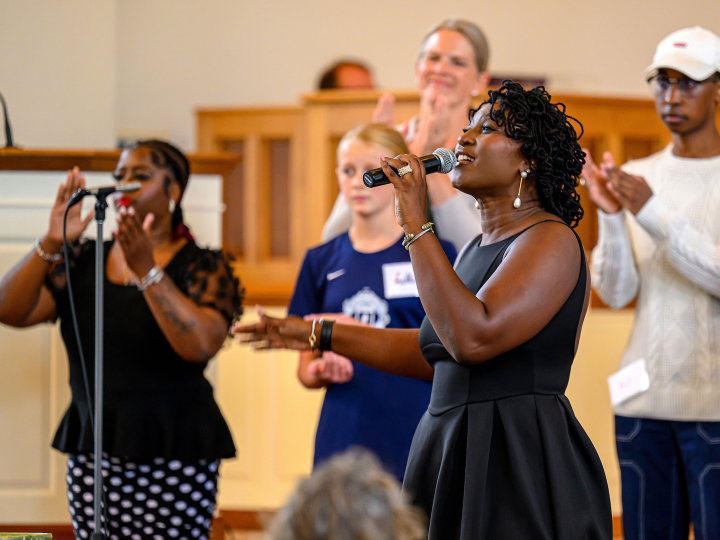Bucknell Leads in Faculty Fulbrights
February 24, 2016
Bucknell University leads all U.S. undergraduate-focused institutions in faculty Fulbright awards in the 2015–16 academic year, according to a report published Feb. 22 by The Chronicle of Higher Education.
The Chronicle's report divided schools by the type of degrees they offer into four categories: Ph.D.-granting research institutions, schools offering dedicated master's programs, schools primarily offering bachelor's degrees and community colleges. Bucknell stood alone atop the bachelor's category with four faculty members earning Fulbrights. In the master's category, only one school had more: Eastern Michigan University with five.
"The success of our faculty in attaining Fulbrights is a significant marker of the high caliber of scholarship in which our faculty engage," said Bucknell Provost Barbara Altmann. "Our teacher-scholar model gives our students wonderful opportunities to study and work closely with highly accomplished researchers who are at the top of their respective fields."
Administered by the U.S. Department of State, Fulbright awards provide a variety of research, teaching and education grants for travel abroad. Professors Charles Knisely '75, Bill Flack, Doug Hecock and Andrew Stuhl received Fulbrights to teach and conduct scholarship abroad for all or part of the 2015-16 academic year.
Knisely, mechanical engineering, spent the fall semester in southeastern Brazil furthering his research on the interaction between flowing water and structural dynamics of gates on rivers, which can cause those gates to vibrate and sometimes fail. He also taught at the Federal University of Uberlândia in southeastern Brazil. His Distinguished Chair Fulbright was made possible through Bucknell's participation in the Brazil Scientific Mobility Program.
Flack, psychology, was a Fulbright Scholar at Ulster University's Magee and Coleraine campuses in Northern Ireland during the fall semester. There he conducted research on violence in dating relationships among university students and taught about psychological trauma at the International Conflict Research Institute, a joint project of Ulster University and the United Nations University.
Hecock, political science, is spending the academic year in Mexico doing research on the politics of foreign direct investment. Hecock is interested in how local political contexts affect where investment goes in Mexico, including why some investors prefer border states while others seem to privilege states that are further from the U.S. but very well governed. His research is affiliated with the Center for Economic Research and Training in Mexico City.
Stuhl, environmental studies, is spending the spring semester in Ottawa, Canada, reviewing government records pertaining to a series of environmental laws that impact the North American Arctic. His research examines how a policy tool to incorporate ecological and local welfare concerns into decisions impacting the Arctic was developed and refined by U.S. and Canadian lawmakers from the 1970s through the 1990s. He is also serving as a visiting research chair at Carleton University in Ottawa.
Two members of the Class of 2015, Lisa Hubbard and Jared Eister, also received Fulbright student awards to study abroad following their graduation.

